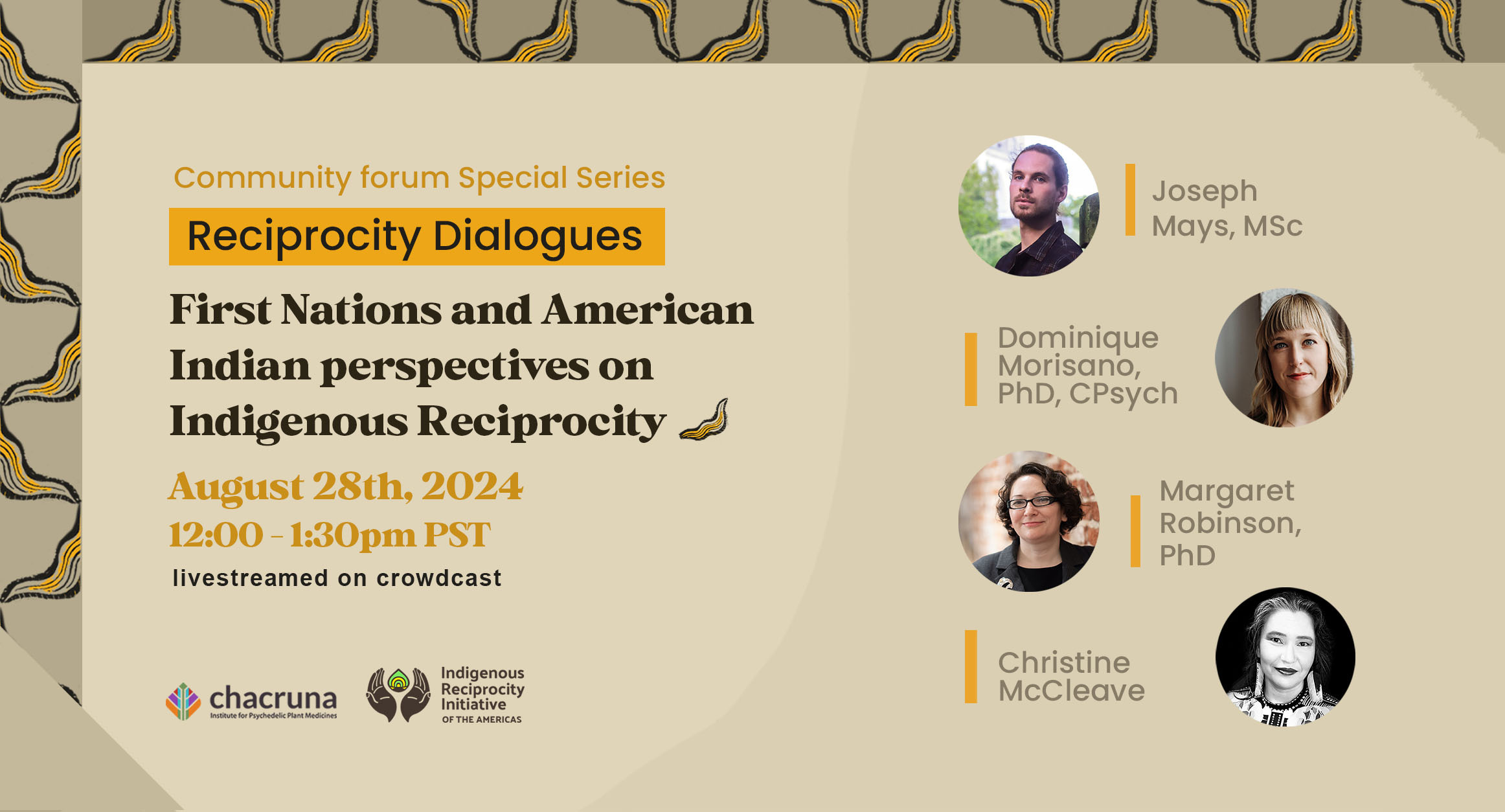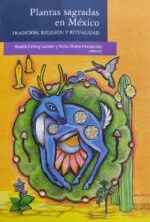- Marketing Internship (OPEN) - June 12, 2025
- Press Release – Chacruna Receives $150,000 Grant from Kindred Trust - June 10, 2025
- Events Production Internship (OPEN) - June 10, 2025
Wednesday, August 28th, 2024 from 12:00-1:30pm PDT
Register for this event here.
Join us for a thought-provoking Community Forum as part of Chacruna’s special series, The Reciprocity Dialogues. Speakers will discuss key topics related to ethical and policy considerations about conducting research with Indigenous Peoples in the U.S. and Canada. The forum will explore traditional and Indigenous perspectives on healing trauma with psychedelic plant medicines and examine psychedelic science through Indigenous lenses. Topis will include: How can companies and researchers meaningfully support the co-creation of research with Indigenous Peoples? How can researchers of psychedelics engage respectfully with Indigenous peoples regarding ceremonial meaning or uses?The forum will feature Christine Diindiisi McCleave, an enrolled citizen of the Turtle Mountain Ojibwe Nation and a doctoral student in Indigenous Studies at the University of Alaska Fairbanks; Margaret Robinson, a two-spirit Mi’kmaw scholar from Mi’kma’ki and a citizen of Lennox Island First Nation; and Dominique Morisano, a clinical psychologist and Adjunct Professor at the University of Toronto/University of Ottawa and Joseph Mays, Chacruna’s Indigenous Reciprocity Initiative Advisor. Come join us!

Dominique Morisano, PhD, CPsych (she/her) is of Italian/Balto-Slavic descent and a dual Canadian/US citizen raised in rural Connecticut. She is a clinical psychologist and Adjunct Professor at the University of Toronto/University of Ottawa and engages in teaching, practice, research, and consultation in North America and Europe. Her professional areas of interest include research ethics, addiction and mental health services, goals/motivation, implementation science, plant medicines, and psychedelic-assisted psychotherapies. As a child, she became very interested in learning about and protesting injustices against Indigenous Peoples in North America. She continued her learning exploration through and beyond graduate school, studying the intersections of spirituality and science, including Native American religions; volunteering at Montreal’s First Nations Friendship Centre; participating in ceremonies and forming healing relationships with several Elders (in both the North and South); and via ongoing research and project collaborations with Indigenous colleagues across Canada and the US. Website: drmorisano.com
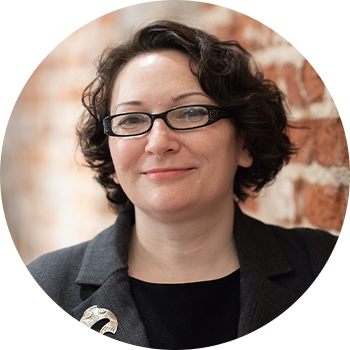
Margaret Robinson is a two-spirit Mi’kmaw scholar from Mi’kma’ki, and a citizen of Lennox Island First Nation. Margaret regularly publishes on sexual and gender identity, mental health, substance use, food sovereignty, and Indigenous cultural continuity.
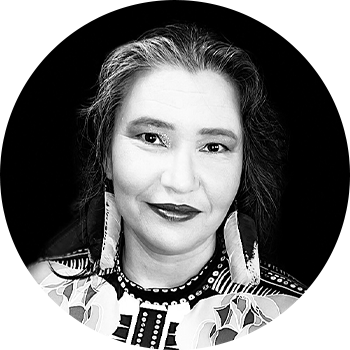
Christine Diindiisi McCleave, enrolled citizen of the Turtle Mountain Ojibwe Nation, is a doctoral student at the University of Alaska Fairbanks Indigenous Studies program with a focus on Indigenous Knowledge Systems of entheogenic plant medicines for healing. Her master’s thesis on Native American spirituality and Christianity and the spectrum of Native spiritual practices today, including Peyote religion, led her to become CEO of the National Native American Boarding School Healing Coalition where she helped introduce a bill for a national truth commission and worked with the United States Department of the Interior to investigate Indian Boarding Schools. Currently, she is facilitating Colorado’s Tribal Working Group under the Natural Medicine Health Act. In 2023, she was listed as one of 75 influential, innovative, and disruptive women in Psychedelics by DoubleBlind magazine. She is currently a member of the board for the Minnesota Council of Churches and the Vice President of the board for the Psychedelic Society of Minnesota.
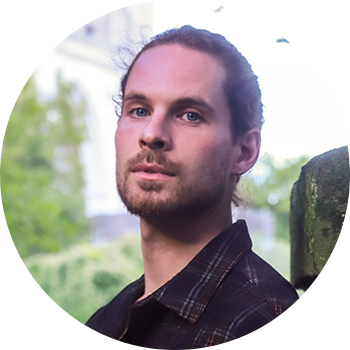
Joseph Mays received his MSc in Ethnobotany from the University of Kent researching responses to globalization by the Yanesha of central Peru. Graduating with biology and anthropology degrees from Virginia Commonwealth University, he published a medicinal plant guide for the Jama-Coaque Ecological Reserve in the Ecuadorian cloud forest. Joseph also holds a certificate in Psychedelic Assisted Therapies from Naropa University, and his conservation work explores how cultural-conditioning influences approaches to biocultural sustainability. His Indigenous rights advocacy stresses the importance of ground-up structures that emphasize local agency and challenge conventional philanthropic models in attempts to support Indigenous autonomy and biodiversity. Joseph is Program Director of Chacruna’s Indigenous Reciprocity Initiative (IRI), where he partners with Indigenous community organizations throughout the Americas to support Chacruna’s mission of increasing cultural reciprocity in the psychedelic space, raising unconditional funding and engaging with Indigenous and local stakeholders on their own terms.
This talk will be recorded and immediately available for rewatch for all attendees.
Do you love Chacruna? Want free entry to events, access to our online member community and exclusive events, free merchandise, and much more! Become a member!
Scholarships Available – apply here.
Take a minute to browse our stock:
Did you enjoy reading this article?
Please support Chacruna's work by donating to us. We are an independent organization and we offer free education and advocacy for psychedelic plant medicines. We are a team of dedicated volunteers!
Can you help Chacruna advance cultural understanding around these substances?


